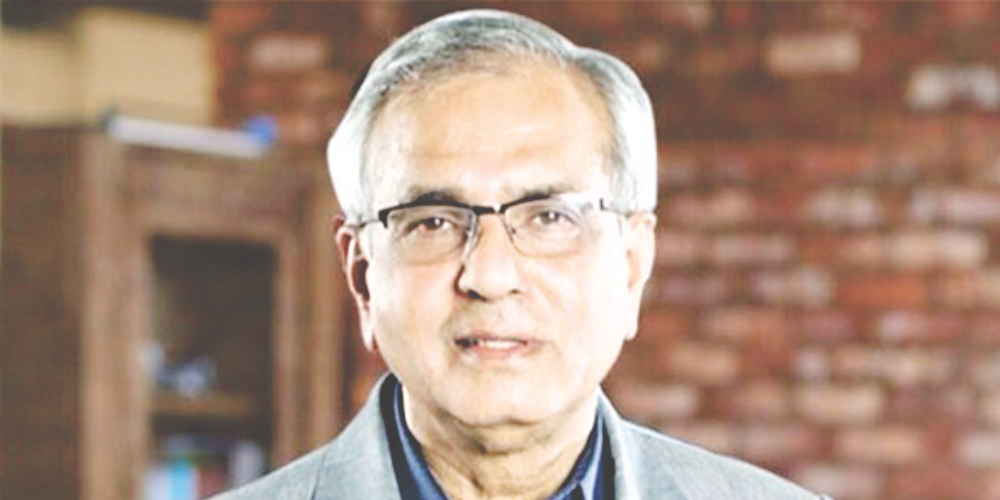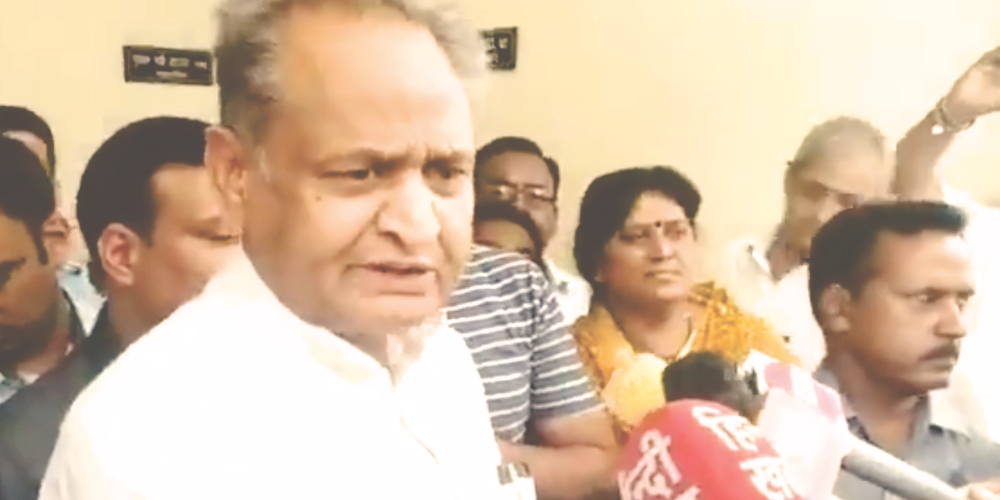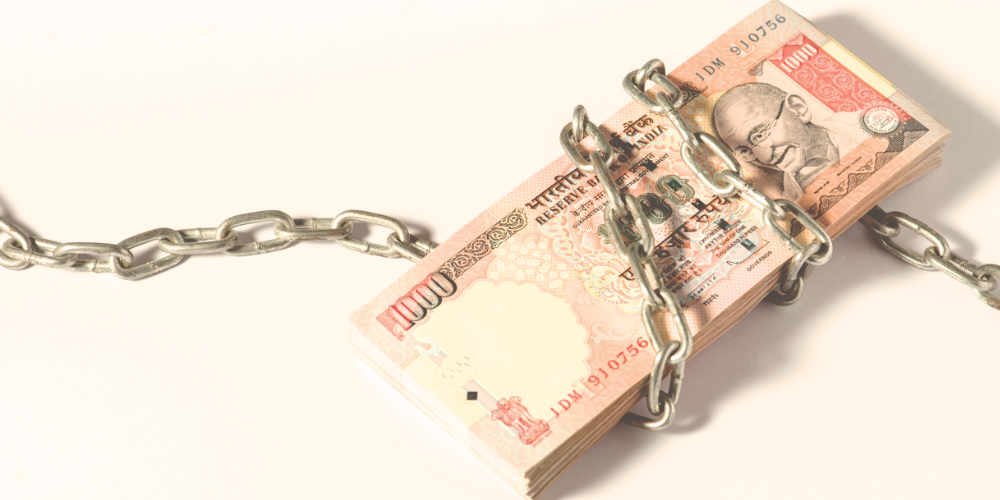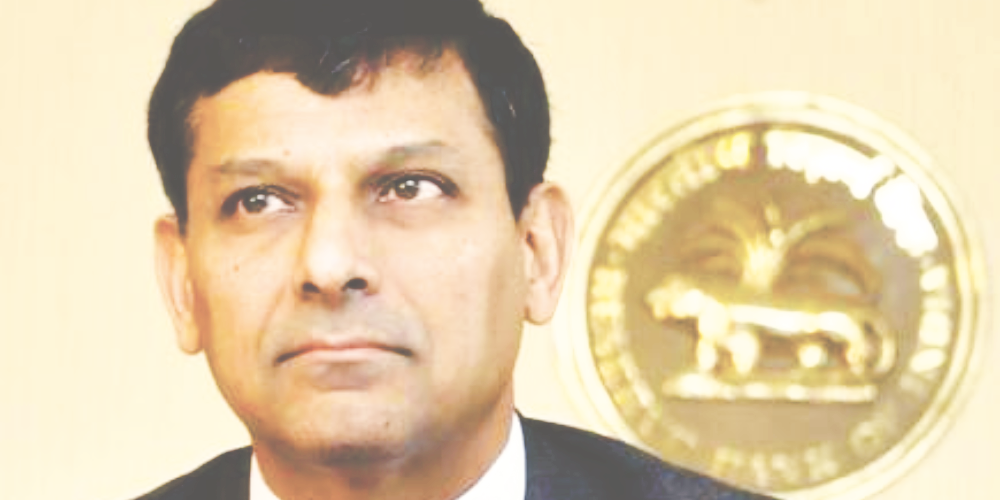Many signs indicate that the Indian economy is under grave stress, affecting nearly all sectors. “India’s economy is in a deep mess,” due to initiatives such as demonetization and GST, some lawmakers say, as they urge the government to handle the situation “which is intensifying on a daily basis.”
Also read: Indian Supreme Court Orders RBI to Answer Crypto Exchanges, New Date Set
‘Unprecedented Situation’
India is facing an economic slowdown not seen in 70 years, Rajiv Kumar, the vice-chairman of Indian policy think tank Niti Aayog, explained at the Hero Mindmine summit last week. The current liquidity crisis has forced businesses to survive on cash since lenders have stopped funding them, he described. “Within the private sector nobody is ready to lend, everyone is sitting on cash.” The vice-chairman was quoted by local media as saying:
This is an unprecedented situation for the government of India. In the last 70 years nobody had faced this sort of situation where the entire financial system is under threat and nobody is trusting anybody else.

Randeep Surjewala, a spokesperson for the Congress political party (Congress), concurs that this is India’s worst liquidity crisis in 70 years, calling for the government to take immediate action. Parliament Member and Congress leader Rahul Gandhi said Friday that the “Government’s own economic advisors have finally acknowledged what we cautioned for long – India’s economy is in a deep mess.”
Every Sector Is Suffering
Parliament Member and Congress spokesperson Manish Tewari held a press briefing Friday regarding the financial downturn. The former Union Minister commended Niti Aayog’s vice chairman for admitting that the current stress in the financial sector is unprecedented. However, he added that Kumar’s statement requires a slight amendment, declaring that “It’s not just the financial sector, it’s the Indian economy.”
Chief Minister of the India state of Rajasthan, Ashok Gehlot, told the press that the “Crisis situation in [the] Indian economy as reflected in the statement of Vice Chairman, Niti Aayog, is a matter of grave concern for the entire nation,” emphasizing:
Almost all sectors are facing problems, lakhs [100,000s] of people are losing jobs.

Tewari shares the sentiment, stating that “Every sector of the economy is under grave stress,” pointing out that over three crore (30 million) people are currently facing a threat of becoming unemployed. According to textile industry participants, “this is perhaps the worst period which the industry has seen in the past 7 decades,” Tewari conveyed during the press briefing. The “inner-wear industry” is also suffering, he noted, adding that “The tea industry is facing [an] unprecedented crisis.”
In a press conference, Parliament Member and Congress spokesperson Abhishek Singhvi raised the issue of the slowdown in the automobile sector, with reports suggesting thousands of job losses there and in ancillary industries. Moreover, the real estate sector has a huge amount of unsold inventory while fast-moving consumer goods (FMCG) companies have reported a decline in volume growth. Singhvi also named several other issues, including crashing stock prices, the rising fiscal deficit, falling GDP figures, the continuous weakening of the rupee, and falling foreign direct and portfolio investments, PTI reported.
Auto Industry and Shadow Banking Crisis
A Non-Banking Financial Company (NBFC) crisis, also called a shadow-banking crisis, lies at the heart of the current economic slump in India. In recent years, shadow banks helped fund nearly 55-60% of commercial vehicles both new and used, 30% of passenger cars and nearly 65% of the two-wheelers in India, according to rating agency ICRA.
Following last year’s collapse of Infrastructure Leasing & Financial Services Ltd. (IL&FS), shadow banks have dramatically slashed lending. The year-long shadow-banking crisis has sent the credit profiles of Indian companies to a 19-month low in July, according to a Care Ratings index. In her July budget speech, the finance minister announced a series of reliefs to NBFCs facing a cash crunch. Meanwhile, the Reserve Bank of India (RBI) cut its benchmark interest rate last week for the fourth time this year.
“The slowdown in the (NBFC) sector has dragged down vehicle sales growth,” A.M. Karthik, financial sector head at ICRA, was quoted by Reuters as saying. “Now the auto slowdown is becoming more visible as the liquidity squeeze continues.”

Some 286 dealerships across India have shut down in the last 18 months due to rising costs for inventory management, according to the Federation of Automobile Dealers Association (FADA), which says that the Indian auto sector faces its biggest slump in nearly two decades. Passenger vehicle sales fell for eight straight months until June, the news outlet described, noting that sales dropped 20.55% in May – the sharpest recorded fall in 18 years. PTI publication wrote:
Sales have fallen in 12 out of 13 months since July 2018, underscoring the sharp slowdown in the world’s fourth-largest automobile market.
Demonetization, GST, and Other Issues
Kumar said the government needs to take “extraordinary steps” to handle the ongoing economic slowdown, IANS publication reported. “It takes a lot of courage to break the inertia … I think the government must do whatever it can to take away some of the apprehension of the private sector,” he was quoted as saying. According to him, the entire economic situation in India had changed after implementation of initiatives like Modi’s 2016 demonetization, the GST (Goods and Service Tax), and the Insolvency and Bankruptcy Code.
Former Minister of External Affairs and Congress member Salman Khurshid told the news outlet that the Indian economy needed a fundamental operation and restructuring, reiterating that the demonetization and the GST are the reasons behind the slowdown. Another Congress spokesperson, Pawan Khera, told the publication that “We have been raising concerns of unemployment, a complete downward trend of the economy, adventurism being indulged in by the prime minister such as in demonetization and GST. These are blunders which are monumental.”

Surjewala also slammed the government for its decision on demonetization and GST. “Three years after the introduction of the faulty GST, India continues to suffer massive shortfalls in revenue,” he opined, adding that “five years of economic mismanagement with sr. economic advisors resigning one after another, 2 RBI govs. leaving in quick succession, Economic quackery like demonetization, Are we surprised that the rupee is Asia’s worst-performing currency?”
Finance Minister’s Reply
After being criticized for her silence, Finance Minister (FM) Nirmala Sitharaman held an unprecedented press conference Friday to address the country’s economic concerns, local media reported. Among other initiatives to boost the economy, she announced capital infusion of Rs 70,000 crore into public sector banks to boost lending and improve liquidity in the financial system. Funding will also increase for housing finance companies as well as the National Housing Bank (NHB).
Sitharaman claimed that, despite the slowdown, India’s economy is still doing better than other countries such as the U.S. and China. Congress disagreed, tweeting that “You cannot make a growth rate comparison without looking at base levels … Our growth rate may be higher than US & China, but they are a $21 trill & $14.8 trill economies respectively, we are $2.8 trill.”

Further disputing the finance minister’s explanation, Congress wrote, “She may have also forgotten that in 2008 during the global recession, our economy remained stable because of Dr. Manmohan Singh’s policies,” emphasizing:
FM says India’s economy is down because of global situation – conveniently ignoring the simultaneous destruction by Demonetisation & GST … India is in dire need of an FM with a basic understanding of economics.
Despite his statement about the unprecedented financial slowdown, Kumar assured people on Twitter that “There is no need to panic or spread panic,” adding that “the government has been taking bold steps to accelerate our economy & will continue to do so.” Tewari is less confident. “The government does not have a clue as to how they are going to handle this crisis in the Indian economy which is intensifying on a daily basis,” he said during Friday’s press conference at his party’s headquarters.
Bold Reforms, Private Sector, Remonetization
Niti Aayog’s vice-chairman has asked the government not to hold back due payments to the private sector. Regarding the country’s NBFC crisis, he said the government would need to “eliminate apprehension from the minds of private sector players” to boost investments.

Former RBI Governor Raghuram Rajan also sees investments from the private sector as a solution. In an interview with CNBC TV18 last week, he said that the government needs to fix the immediate problems in power and non-bank financial sectors. The former central bank governor believes that “a fresh set of reforms” is needed to incentivize the private sector to invest to boost the economy and growth rate, stating:
We also need a new set of reforms, which energize [the] private sector to invest.
“SOPs (standard operating procedures), stimulus of one kind or the other are not going to be that useful in the longer-term especially given the very tight fiscal situation that we have,” he told the media outlet. “Instead bold reforms, well thought out jumping off the cliff but really, seriously thought out reforms in a variety of areas which energize the Indian people, energize the Indian markets and energize Indian business.”
Congress’ Gandhi suggested the government should “remonetize the economy, by putting money back in the hands of the needy & not the greedy.” Meanwhile, the Indian government is deliberating on a bill which seeks to ban cryptocurrencies, and the supreme court has ordered the RBI to reply to crypto exchanges’ representation.
What do you think of the economic situation in India? Do you think crypto can help the Indian economy? Let us know in the comments section below.
Images courtesy of Shutterstock and Business World.
Did you know you can buy and sell BCH privately using our noncustodial, peer-to-peer Local Bitcoin Cash trading platform? The Local.Bitcoin.com marketplace has thousands of participants from all around the world trading BCH right now. And if you need a bitcoin wallet to securely store your coins, you can download one from us here.
The post India Facing ‘Unprecedented’ Economic Slowdown, Extraordinary Steps Urged appeared first on Bitcoin News.
Powered by WPeMatico
